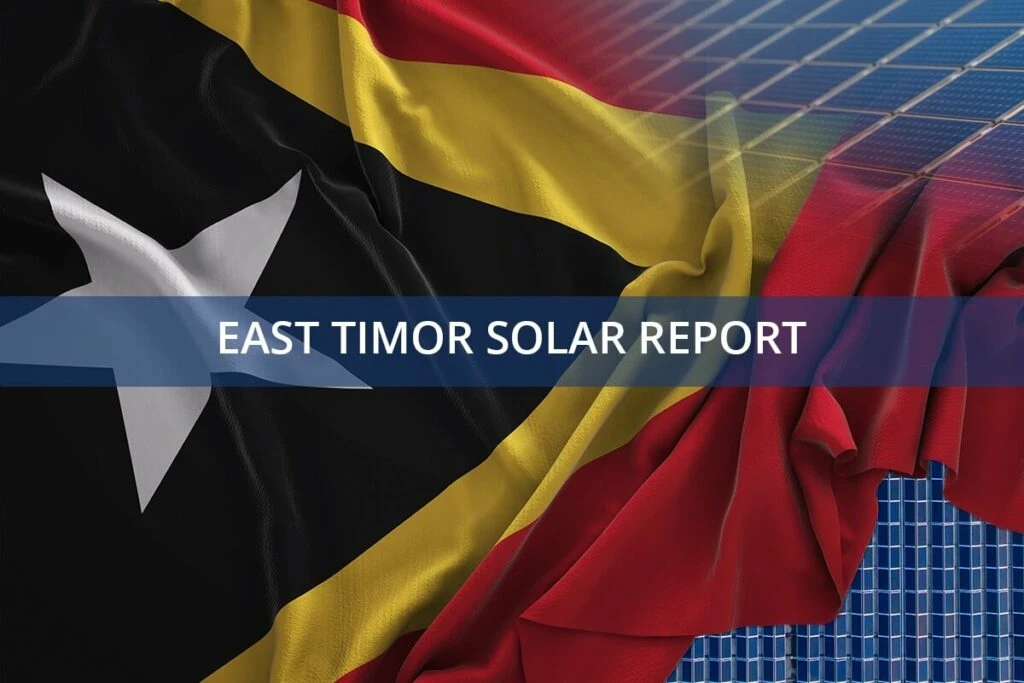Timor Island solar energy potential: A bright future ahead
With its significant solar energy potential, Timor Island is emerging as a key player in the renewable energy sector. According to the latest research, the island boasts an estimated 20.72 GW of solar power capacity. A study featured in the International Journal of Technology emphasizes the vital role solar energy can play in fostering sustainable development and energy security on the island.
Research highlights on Timor Island solar energy
Using GIS-based solar radiation data from the Solar and Wind Energy Resource Assessment (SWERA), the study determined the annual average solar radiation for Timor Island. The data revealed that the island receives an average of 5.32 kWh/m²/day, indicating a high potential for solar energy generation.
To calculate the island’s solar energy potential, researchers assessed land availability in combination with solar radiation data. Timor Island spans a total land area of 3,010 km², with 6.4% of that considered suitable for solar energy development. This combination of available land and solar radiation results in an estimated potential of 20.72 GW of solar power.
The study also drew comparisons with other regions in Indonesia, finding that while Timor Island’s potential is lower than areas like Papua (32 GW), NTB (27 GW), and NTT (23 GW), it surpasses provinces such as North Kalimantan, West Sulawesi, and Southeast Sulawesi.
Timor Island solar energy development in Timor Leste and NTT
The study offers an in-depth analysis of potential solar energy generation for both Timor Leste and the NTT region of Indonesia. Timor Leste, with a land area of 1,470 km², has an estimated solar energy potential of 10.12 GW. Meanwhile, the NTT region, with a land area of 1,540 km², boasts a slightly higher potential of 10.60 GW.
Researchers emphasize that developing solar energy on Timor Island could significantly decrease the region’s reliance on fossil fuels. By harnessing solar power, both Timor Leste and the NTT region can move toward energy independence and contribute to global efforts to tackle climate change.
The study also highlights the importance of government support and policy frameworks in promoting solar energy development. It calls for policies that encourage investment in solar power infrastructure, alongside incentives for businesses and households to adopt renewable energy solutions.
Timor Island solar energy impact on energy security and climate change
The development of solar energy on Timor Island could have a profound impact on the region’s energy security. Reducing dependence on imported fossil fuels would allow both Timor Leste and the NTT region to achieve greater energy self-sufficiency.
This shift would also help stabilize energy prices, as solar power is less vulnerable to global market fluctuations than traditional energy sources.
Beyond enhancing energy security, developing solar energy on Timor Island would contribute significantly to mitigating climate change. By replacing fossil fuels with clean, renewable energy, the region could dramatically reduce its greenhouse gas emissions. This would align with global climate goals and help Timor Leste and the NTT region meet their commitments under international agreements such as the Paris Agreement.
The researchers also note that developing solar energy infrastructure could create new economic opportunities for the region. The construction and maintenance of solar power plants would generate jobs, while the availability of clean energy could attract new businesses and industries to the island.
Timor Island has significant untapped potential for solar energy development. With the right policies and investments, the region could transform its energy landscape and contribute to global efforts to combat climate change. By harnessing its abundant solar resources, Timor Island can secure a sustainable energy future and drive economic growth.



